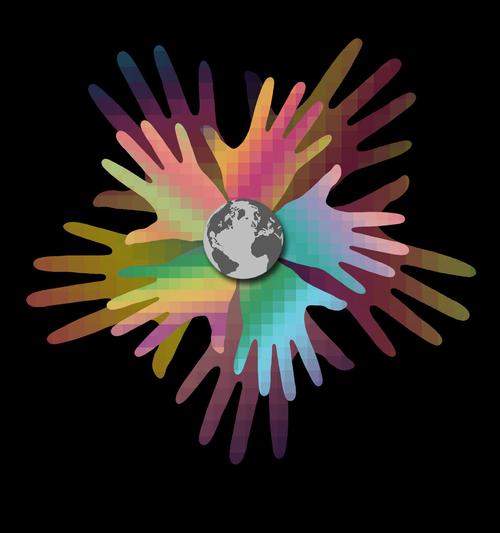Cultural Intelligence Proves Critical to Global Strategy

To be effective globally, organizations need to foster cultural intelligence, especially in senior management.
A couple of weeks ago, I met with the chief operating officer of a leading contract manufacturer with $18 billion annual revenue. He was interested in our technology, and I know he has a reputation for being influential within his organization. I was curious to understand him and how he had gotten to where he is. I found that he attributed five years in China and Singapore as a prime reason that doors opened to him. As a first generation Cuban American, this gentleman finished his MBA 25 years ago and found himself being offered just the right opportunity at the right time. The infamous “leaning in” and a bit of luck helped, but it was really the international experience that helped him reach his goals.
International experience instills the ability to work across cultures and understand local circumstances, he explained. The contract manufacturing business is tough: with tight margins of three to five percent, he added. The company works very hard to make it fun for their employees, and with that comes more emphasis on culture, and on being culturally intelligent and accommodating.
In today’s world, people and places are tightly connected and physical distances don’t matter any longer. We are going to be working and interacting across cultures more than ever before. Cultural intelligence, like emotional intelligence, is critical to inspire people, grow your organization, ensure customer satisfaction, win business, and build a great brand across boarders.
By working in other cultures, people are able to emphasize with people from other cultures. I’m not saying that you need to learn every single detail about the other culture, but you have to know enough to come across as respecting the other individual’s culture, which in turn helps you to collaborate more effectively.
Now, let’s look at some of the reasons that being culturally savvy is important both for an individual career, and for a successful business:
The world is getting smaller & smaller
Now more than ever before, there’s a high chance of meeting/working/interacting with someone who is an expert in a specific field and is also from a different culture or a different country. I see the changes in my own neighborhood, where my family lives side by side with a Korean American family, a French American family, an Irish American family, an African American family and an Iranian American family. Every morning, when my daughter gets on the school bus, she interacts with all these kids and when they come home, all of them play together. All the parents are connected in Facebook and they share pictures, meet at events and stay in touch. Cultural learning happens every day. Being smart about the cultures of other families help them maintain relationship. At work, particularly on virtual teams, the chances of working with someone from a different culture are even greater.
The emergence of a sharing economy
The sharing economy is pioneering new industries and business models are both game changing and disruptive. For example. I travelled to New York City earlier this year and I wanted a good and cost effective place to stay close to the city and found a place through Airbnb. My stay gave me a different experience, more like staying with a distant relative that I’d never met than staying in a hotel. The gentleman subletting the room in his apartment was welcoming, presenting me with the gift of a new scarf and ear warmers to help me survive the cold. He showed me around his place and let me rest in a comfortable and tidy room…perfect.
 Later, after I finished my business, I came back and we had a pleasant conversation. He told me about the people who have stayed with him, travelling from China, Japan, Germany, Australia, New Zealand, and other countries. He’s become friends with these people and kept in touch over social networks. He had a pin board, with a world map, that marks where his visitors have come from. Many people had sent post cards after their visit. I found the experience interesting, and, of course, it demonstrates the cross cultural savvy that these new models both require and support. Companies like Uber, Lyft, Task-rabbit, Lending Club, Snap-goods, Roadie, Neighborhoods are disrupting established business models and require a lot more cultural intelligence to take advantage of them.
Later, after I finished my business, I came back and we had a pleasant conversation. He told me about the people who have stayed with him, travelling from China, Japan, Germany, Australia, New Zealand, and other countries. He’s become friends with these people and kept in touch over social networks. He had a pin board, with a world map, that marks where his visitors have come from. Many people had sent post cards after their visit. I found the experience interesting, and, of course, it demonstrates the cross cultural savvy that these new models both require and support. Companies like Uber, Lyft, Task-rabbit, Lending Club, Snap-goods, Roadie, Neighborhoods are disrupting established business models and require a lot more cultural intelligence to take advantage of them.


 1. Increases EPP, using budgeted line items.
1. Increases EPP, using budgeted line items. Millennial friendly technology, less onboarding time, very easy adoption – touch screen keypad, and 43% of Millennials already use IOS, familiar with Facetime, 85% of Millennials aged 18-24 own devices and 86% aged 25-34 own them, consume a lot of video on their smartphones, and are highly comfortable with this medium, they understand and like apps.
Millennial friendly technology, less onboarding time, very easy adoption – touch screen keypad, and 43% of Millennials already use IOS, familiar with Facetime, 85% of Millennials aged 18-24 own devices and 86% aged 25-34 own them, consume a lot of video on their smartphones, and are highly comfortable with this medium, they understand and like apps.